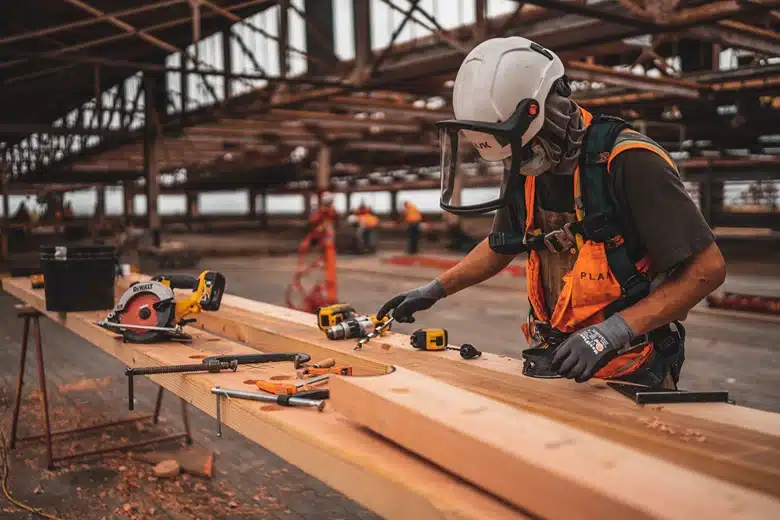Construction sites are dangerous places to be in, and the risk of accidents is ever-present. Sure, physical injuries take precedence after a workplace accident, but they should also pay attention to the psychological impact the event had on the workers, as it can be serious and leave a lasting impact. Construction workers in Illinois can develop a variety of mental health problems due to trauma related to their work, such as post-traumatic stress disorder (PTSD), anxiety, and depression, click here to find out more. Recognizing the mental impact accidents on construction sites have and support systems available to affected workers is essential for their wellbeing.
Post-Traumatic Stress Disorder (PTSD)
PTSD is a relatively common psychological crime, and it is also an emotional memory reaction of human beings to traumatic events like accidents on construction sites. Employees who see or experience critical accidents can suffer redressing traumatic recollections or flashbacks of the crash. They might also display avoidance behaviors avoiding things that could remind them of the trauma that could be including avoiding the construction site or avoiding discussions about the accident. PTSD also results in long-lasting negative beliefs and emotions, a sense of hopelessness, and detachment from other people.
Anxiety and Depression
Other important mental health problems that can occur after construction site accidents are anxiety and depression. Anxiety can lead workers to excessive worry, restlessness, and physical symptoms like a racing heart or sweating. Depressive symptoms, such as constant low mood, an absence of interest in life and activities, lethargy, and changes in appetite or sleep. Such psychological disorders can greatly affect the day-to-day and occupational functioning of the worker, resulting in decreased productivity, interpersonal relationship issues with co-workers, family, or friends, increased absenteeism, and risk of re-injury due to impaired attention and concentration.
Impact on Daily Life and Work
Workers involved in accidents at construction sites need access to mental health support. This is why professional help – specifically therapy, counseling, and sometimes medication – works to treat symptoms of PTSD, anxiety, and depression. It not only helps stop the symptoms from getting worse but also helps with recovery. Employers are also key contributors to the mental health of their employees through the provision of mental health services, a supportive workplace culture, and training for supervisors and employees to better understand and respond appropriately to mental health issues.
Worker`s Compensation
Workers who suffer mental illness due to an accident on a construction site are entitled to medical benefits for their treatment, including medically necessary mental health therapy and medications. If a psychological work injury prevents the worker from working, temporary total disability (TTD) benefits may be available as wage replacement, while permanent partial disability (PPD) compensation may also be available for long-term psychological impairments impacting the ability to work.
Workers who suffer psychological injuries must notify their employer of the injury within 45 days and obtain a diagnosis and treatment from a licensed mental health care practitioner. Reporting an injury to the worker’s employer and filing the workers’ compensation claim with the IWCC involves much more detail and procedure that an experienced attorney can help with, as many forms and descriptions must accurately be filled out to avoid penalties. Moreover, if the accident also involved the negligence of another party, workers may also have a third-party liability claim that can offer additional compensation.
We understand the psychological effects of accidents on construction sites and the support systems available to promote well-being among these Illinois residents. Combining care on both the physical and mental health levels can create a work culture where employees are healthy and supported, resulting in an atmosphere that prioritizes the well-being of the workforce.
Keep an eye for more news & updates on EssentialTribune!








